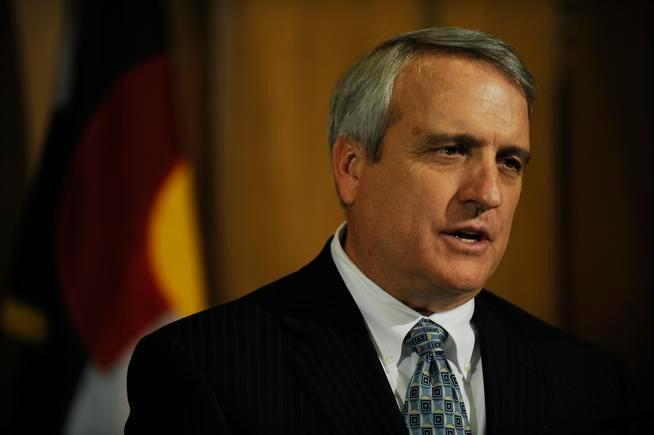Gov. Roy Romer was as vigilant as any of Colorado’s chief executives in voicing his resolve that anyone seeking clemency would have a high bar to reach.
Anyone actually getting it needed to have overreached.
“It is my belief that only an exceptional person merits a pardon or commutation of sentence,” Romer was frequently quoted as saying whenever clemency was discussed.
Other governors said much the same, noting that they did not easily undo that which a judge or jury had put into place.
Of the nearly 500 people The Denver Post could identify who receive executive clemency from a Colorado governor between 1979 and 2020, the majority remained true to their promise that they deserved it and would lead a better life.
About two dozen people to have their sentences commuted in that time found themselves back in prison, typically within two or three years, The Post found.
The newspaper could not trace all the names because many of the executive orders granting the clemency cannot be located or the scant information available about the others, such as very common names and no dates of birth or case numbers, wasn’t enough to ensure the right person was identified.
In 1980, then-Gov. Richard Lamm pardoned Douglas Rubins of his marijuana crimes. Three years later, records show Rubins was convicted of attempted murder and first-degree assault.
Three others whose sentences were commuted that year found themselves behind bars within a few years, including Jason Long, 65, who’s been in prison since 1992 serving a life sentence for kidnapping and sex assault charges.
And of the 33 prisoners to receive a commuted sentence from Lamm in 1981, half were back in prison within five years, The Post found.
Of the 38 commutations Lamm issued in 1983 and 1984, three would return to prison on murder charges, records show.
“I suppose there’s an inherent risk of anyone in the system going back into it, whether they are issued clemency or not,” said attorney James Kurtz-Phelan, Lamm’s chief legal counsel from 1979-1982 who offered the governor advice about clemency issues. “Recidivism is part of the criminal justice system and I’m not sure it’s any different with clemency on the table.”
Over a dozen years, Romer exercised his right as governor to pardon the crimes or commute the sentences of more than 50 people – although several of the executive orders cannot be located and the recipients unidentified, according to a Denver Post review.
In 1988, Romer offered clemency to only one inmate, Lawrence Eims, who was convicted of attempted forgery and criminal impersonation three years earlier.
Since then, he’s been convicted of felony theft and aggravated car theft, earning him another four years in state prison.
“I think no matter how careful you are or how much diligence you do, a longstanding fact of human history is you can’t predict human behavior,” said attorney Tim Daly, Romer’s former chief legal counsel and advisor on clemencies. “You can try to understand all you can about a case or a person, but you just can’t predict everything.”
Gov. Bill Ritter, a one-term governor who had been Denver’s prosecutor, said he was especially careful reviewing the hundreds of petitions that came before him. Ultimately he wrote nearly 50 clemency orders – tallies from different sources vary from 42 to 49. The Post could not locate them to check.
“It is difficult to say that there are any ‘general criteria’ for commuting or pardoning a person,” Ritter said. “Typically, the decision … turned on a unique set of circumstances, including, sometimes, circumstances that were unknown to the jury. … While the decision was ultimately mine and mine alone, I listened carefully to my staff and took the advice of my team quite seriously.”
Of the executive clemencies Ritter issued and that the Post could track, three people found themselves back in prison. Ritter said he remembered only one of the three cases: convicted juvenile murderer Dietrick Mitchell, whose life sentence Ritter commuted in 2011 to 32 years and who was paroled even sooner. Mitchell was back in prison for a year by 2018 on felony drug and motor vehicle theft convictions, records show.
“It is fair to say that governors should take this responsibility seriously, but it is impossible to completely and accurately predict future behavior, so the process has inherent risks to it,” Ritter said. “After my time working in the criminal justice system, it is not a total surprise to me that some people who have been in the system wind up back in the system at some future date.”
Source: Read Full Article





